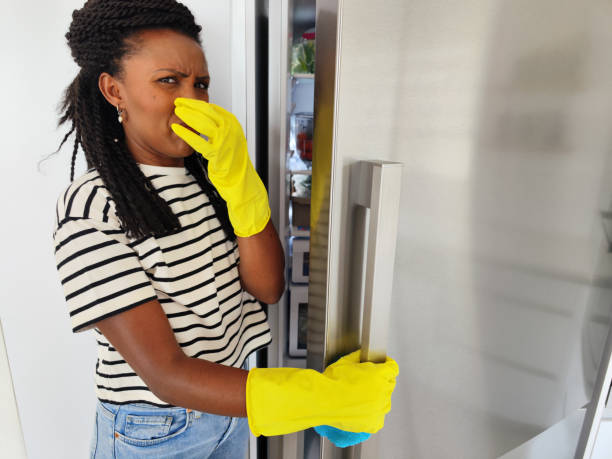Editor’s Note: More than a half million African-Americans have died from smoking-related diseases over the past decade. That’s enough people to fill the cities of Atlanta, New Orleans, Kansas City, Mo., or Cleveland, Ohio. Yet, “cigarette smoking is the single most preventable cause of premature death in the United States”, according to the Centers for Disease Control. Then why are so many Black people dying from cigarettes and why is it so difficult to quit? This eight-part series – “Nicotine Addiction” – seeks to explore these questions by featuring real people, real circumstances, and real answers.
WASHINGTON (Akiit.com)- His body leaning slightly to the side behind the wheel, the taxicab driver asserts his best manners when a customer hops into the back seat.
“I was smoking a cigarette,” says the cabdriver politely, wearing a fishing hat and sporting a full white beard. “Do you mind?” He displays a freshly lit cigarette between his fingers.
When the customer nods the answer, yes, he quickly crushes it in the ashtray while flashing a grimacing glance into the rear view mirror.
“Why do you smoke any way?” the customer inquires.
After a sigh and a five-second pause, the answer comes from the driver’s lips as smoothly as his name.
“No woman. No money.”
According to medical experts and anti-tobacco advocates, people who are prone to sociological stress, such as African-American men, who daily face the stresses of racism and oppression, may particularly be susceptible to drug dependency, including nicotine, the addictive substance in cigarettes.
“Nicotine is a drug. So that’s how drugs work,” says Makani Themba-Nixon, executive director of the Praxis Project, a non-profit organization that helps communities of color advocate for public policies on tobacco and health. “But, also, it’s legal, it’s accessible and in our community it’s accessible in places where in other communities you can’t even buy cigarettes.”
From flower shops to pharmacies to billboards to corner stores, cigarettes and cigarette promotions are readily available to new or veteran smokers in Black communities, which are often economically and socially oppressed, Themba-Nixon points out. The condition of a person’s social life can determine how they respond to the enticements, she says.
“Racism is dangerous to our health. And not only racism in the way that we think of it, classic racism, but the denial of opportunities, how it affects where we live,” says Themba-Nixon. “There is something called social determinants, which are things like where you work, where you’re born, your social class and stature, how much access and equality you have in your lives, and the research is clear that that actually has more of an impact on your health than your personal habits – and in fact, it shapes your personal habits. And the research is clear that the greater the availability, the greater the use,” she says.
The Black cab driver describes it as being a psychological game in which the cigarette fills the voids in his life.
“It helps our thinking,” he says, agreeing only to give his first name, Dan.
He illustrates: “You take a puff.” His left hand on the steering wheel, he feigns a pensive look, puts an imaginary cigarette to his mouth with his right hand, drags deeply, and breathes out slowly. “The cigarette helps your thinking. It’s like a fictional person…The cigarette is a major player in affecting the situation,” he tells his customer, this reporter for the NNPA News Service.
The drag is often to a dead end, according to statistics reported by the Center for Disease Control and the American Heart Association:
– Of the more than 4.5 million Americans who die from smoking-related diseases every year, 450,000 are African-Americans.
– Twenty-two percent of all adult African-Americans smoke. Twenty-seven percent are Black men and 17 percent are Black women.
– Although African-Americans make up only 12 percent of America’s population and Whites make up 80 percent, the smoking rate of Blacks is approximately equal to that of Whites at 22 percent.
– Heart disease and stroke, the leading cause of death in America, account for about a third of all deaths among African-Americans. It is estimated that as many as 30 percent of African-American deaths from these cardiovascular diseases are a result of tobacco use. About 42 percent of Black men have high blood pressure (which leads to stroke), compared to 31 percent of White men.
– Cancer is the second leading cause of death in the U.S. and among African- Americans. Of African-Americans, 5,853 women, and 10,030 men died of lung, trachea or bronchus cancer in 2001, cigarette smoking being the main cause. In 2003, 50 percent more Black men died of lung cancer than White men.
The U. S. Agency for Health Care Research and Quality, reports that based on research, “Quit rates are higher for Whites than for Blacks and Hispanics. Black smokers appear to be more dependent on tobacco than Whites, that is, they are more likely to light up within the first 10 minutes after waking in the morning,” states a report by the agency, “Race and sex may play a role in a person’s ability to give up smoking”. It continues, “Although Black smokers smoke significantly fewer cigarettes, start smoking later than Whites, and report more desire to quit, they have more difficulty quitting.”
Kevin McDonald, a chef, who quit smoking two years ago after smoking consistently for 25 years, says he simply got tired of the dependency. “I got tire of waking up and the first thing I’d do is light a cigarette.”
But, he agrees with Dan.
“I guess it does soothe. I guess it calms you in some sense, maybe the nicotine,” says McDonald, 51. “For me, it was between [smoking] and coffee. But, I find that to be a weak excuse.”
Researchers have also pointed to the fact that Blacks prefer mentholated cigarettes, which are harder to quit.
A report by the Journal of the American Medical Association refers to a “Science Daily” article that states, “Menthol and non-menthol cigarettes appear to be equally harmful to the arteries and to lung function, but smokers of menthols may be less likely to attempt or succeed at quitting.”
The Journal continues, “For a variety of historical and cultural reasons, including targeted advertising by the tobacco industry, African-American smokers are much more likely to smoke menthol cigarettes than European-American smokers [approximately 70 percent for Blacks to 30 percent for Whites].”
Doctors speculate that menthol, a type of alcohol, has a numbing affect on the upper respiratory system after a few drags, causing the smoker to drag deeper to get the cool sensation that comes from menthol. The result is deeper, increasingly toxic inhalation and greater dependency on the nicotine.
“The tobacco industry has used targeted advertising to effectively drive up their sales and profits. In doing so, it drove up the death rate of African-Americans,” concludes a study, “Being a Black Smoker,” a Joint Project of the National African-American Tobacco Prevention Network and The University of Dayton School of Law.
McDonald, who smoked mentholated Newports, says he quit cold turkey two years ago for a simple reason: “I wanted to live.”
By Hazel Trice Edney









Leave a Reply